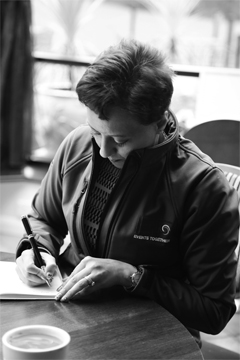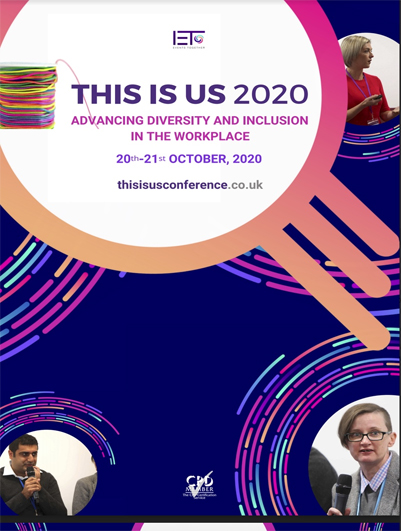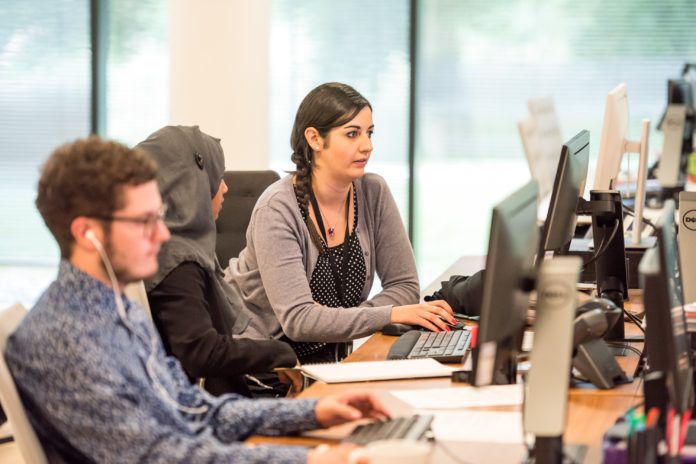In this week’s guest column, Meena Chander, Founder & CEO of Events Together Ltd, explores why organisations need to develop a better understanding of intersectionality, and the many benefits of embracing and nurturing it in the workplace.
The term ‘intersectionality’ isn’t new, but it’s growing in prominence and is now a pivotal consideration for organisations striving to take a holistic approach to eradicating discrimination and creating workplace cultures that harness all aspects of diversity and inclusion. For some, it can be difficult to define intersectionality, but that shouldn’t detract from how important it is to understand, and be aware of the practice and what it seeks to achieve in working environments. Here, we look at what intersectionality is and how it can be used as a tool to benefit your business and workforce.
DEFINING INTERSECTIONALITY
In the UK, The Equality Act 2010 exists as legislation to protect everyone against discrimination on the basis of nine protected characteristics:
- Race
- Disability
- Sex
- Age
- Sexual orientation
- Religion or beliefs
- Gender reassignment
- Marriage and civil partnership
- Pregnancy and maternity
With the above in mind, an intersectional approach recognises that every person has a social identity that consists of a combination of different characteristics. Intersectionality is an acknowledgement of how the overlap and intersection of these factors, such as gender, race and sexual orientation, can create unique and complex experiences of discrimination, disadvantage or inequality for an individual.
In reality, protected identities are rarely discriminated on disparately; prejudices are usually projected with multidimensional elements in play – it is this awareness that is at the core of promoting intersectionality effectively in a working context.

ILLUSTRATING THE POINT
Understanding the complexities of intersectional prejudice can sometimes be helped by looking at how it occurs discreetly on a day-to-day basis. If you consider a Muslim woman, who is also a lesbian, in a predominantly male work environment – where she is not yet out – there are various facets that could intersect to cause either direct or indirect discrimination against her. Not only is she a woman, potentially facing inequality against her male counterparts, but she may be reticent to share her sexuality for fear this may affect her career progression.
The repression of her authentic self can have knock on effects, such as internal turmoil and a sense of worry that someone will find out. If we also say that she doesn’t drink – as part of her religious practice – and is often isolated from social interactions outside of the workplace, and you can see how aspects of her individuality are overlapping and causing undertones of exclusion at best, and discrimination at worst, that could have a negative impact within her role.
SHAPING DIVERSE & INCLUSIVE CULTURES
In 2020, employers have a responsibility of leading the way and shaping diverse and inclusive cultures that are representative of a 21st century workforce: improving access, equality and opportunity for all. Intersectionality can be used as a framework and analytical tool to support in meeting these goals and achieving further business benefits. Let’s explore how:
- Supports a proactive approach to HR and ensures compliance to the Equality Act 2010
Adopting intersectionality as an approach allows your organisation to take a proactive stance on HR policies; analysing what they currently cover and where they can be improved. This review process also puts UK equality legislation at the core of policy creation and ensures compliance.
- Boosts equality and diversity
Promoting the differences within your workforce can have widespread advantages. Creating a culture whereby everyone is confident and secure to bring their whole selves to work, fosters an environment that invites people to share, collaborate and capitalises on a diverse range of skill-sets that can enhance productivity and the ongoing success of your business.
- Recognises that discrimination is a unique experience
Being intersectional demonstrates that your company understands the multifaceted and interlinked nature of discrimination. The policies in place, therefore, recognise unique and individual experiences of disadvantage or prejudice and help protect employees on the basis of converging identity markers.
- Builds reputation
Building a positive reputation both internally and externally is vital for any brand. Acknowledging and tackling the issues that face your people in and out of work and taking action to influence and embed change will go a long way in shaping favourable perceptions around the core values and ethos of your organisation.
- Nurtures health and wellbeing
Incorporating intersectional policies takes constructive steps towards creating a safe, accepting and supportive work platform for all; it communicates to teams throughout your organisation that your business cares. Fostering a culture on this basis can work to reduce anxiety and fear, which can only help to facilitate the growth of a more dynamic, authentic, efficient and effective workforce.
EMBRACING INTERSECTIONALITY
Embracing an intersectional discrimination policy is a clear commitment to cultivating a culture founded on respect, support and understanding. It’s evident that where equality practices are inclusive of every employee, prevention of discrimination can be achieved to the great benefit of both employees and the company.
Discover more about the topic of intersectionality, and the practical and achievable ways you can incorporate the approach within your organisation, by attending This Is Us 2020 conference. Registration is open now. Click here for more information.

AUTHOR BIOGRAPHY
Meena Chander is Founder & CEO of Events Together Ltd, a boutique events consultancy based near Milton Keynes, with over 20 years of global event management experience. She is also the Founder and Curator of This Is Us Conference, which is a unique two-day conference where attendees can learn, celebrate and shape the future of diversity and inclusion together.








































